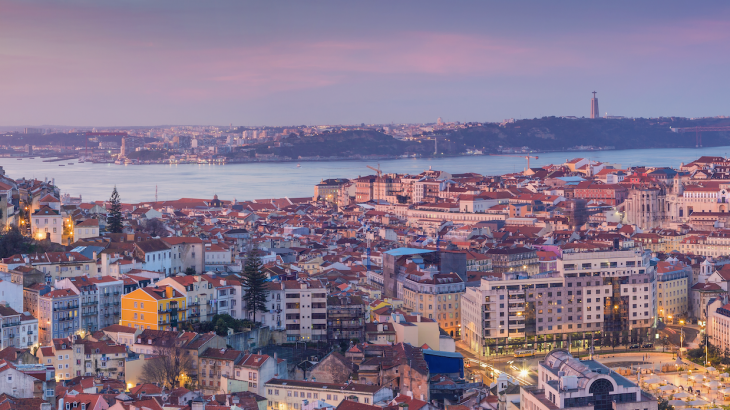Portugal offers a Golden Visa (residency through investment) program and recently dropped the amount of time you need to hold residency before applying for citizenship from six years to five.
- Property is an acceptable form of investment for the Golden Visa program
The minimum investment requirement in a Portuguese property depends upon where the property is located and how old it is. This ranges from €280,000 for a property over thirty years old in a low-density area up to €500,000 for a property newer than 30 years and not located in a low-density area.
For the full list of investment amounts for property, please click here.
2. Lots of different types of investment are eligible for Portugal’s Golden Visa Program
In addition to property, applicants for Portuguese Residency by Investment can include capital transfers into Portugal of at least €1 million; starting a business and creating ten jobs; acquiring a Portuguese business for €350,000; or making a donation of at least €250,000. The investment amounts can vary based upon different incentive structures and we advise you to speak with our attorneys to discuss the various options. For example, if you open a business in a low-density area then you are only required to create eight jobs.
3. There are low physical presence requirements rates Portuguese residents through the Golden Visa
Portugal requires a short stay of 14 days every two years to maintain residency. Given its beautiful beaches, dynamic cities, and stunning countryside, this requirement is not especially burdensome. If you require a lower physical presence requirement, you should investigate that Grenada Citizenship by Investment Program, which does not require you to ever visit the island even once you hold citizenship.
4. Preferable tax rates for Portugal Golden Visa Holders
Unless you spend more than half the year in Portugal you will not be liable for normal Portuguese taxes after obtaining the Golden Visa. Since you only need to be physically present for a fortnight every two years, you can easily stay below this taxation threshold. That said, if you do wish to move your primary tax residency to Portugal, the country offers tax benefits and income tax exemptions for non-habitual residents.
5. You can include your family in the Portugal Golden Visa Program
The primary applicant for Portugal’s Golden Visa can also include a spouse, children under 18, unmarried children under 26 still in education, and parents over the age of 65. These family members do not require their own separate application.
6. Portugal has a strong passport
If you hold residency for five years, then you become eligible for a Portuguese passport. It is one of the strongest in the world with visa-free access to over 135 countries. Portuguese citizens can travel unencumbered in the Schengen travel zone and are eligible for a visa waiver to the United States. Portugal surprisingly does not hold an E-2 Treaty with the United States and while there are absolutely no guarantees we think that it may be one of the next countries to sign one. An E-2Treaty Investor Visa can move to the US for the purposes of investing in and running a business.
7. Access to the entire European Union
Portugal has been a member of the European Union (EU) since 1986. The EU guarantees four fundamental freedoms across all 27 members: goods, people, services and capital. This means that once you hold Portuguese citizenship (after holding residency for at least five years) you can live and work in any other EU member state. So if you ultimately wish to live in Berlin, Paris, Dublin or Stockholm, Portgual could be the gatway to achieving that aim
More about Portugal’s Golden Visa Residency-by-Investment Program
Portugal has operated its Golden Visa Residency-by-Investment Program for almost ten years. Thousands of people have successfully obtained residency and subsequently citizenship in that time. Donation starts at €250,000 and investment from €280,000. For more information please click here.
This article is published for clients, friends and other interested visitors for information purposes only. The contents of the article do not constitute legal advice and do not necessarily reflect the opinions of Davies & Associates or any of its attorneys, staff or clients. External links are not an endorsement of the content.


























